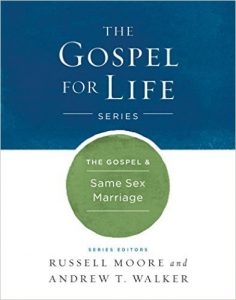What is the glory of a woman? How can we overcome our failure, shame, and fear?
These were some the questions we explored as I spoke on the topic of “Living as Women of Strength and Honor.” I was privileged to speak at a women’s brunch hosted by the Adorned Women’s Ministry at the First Baptist Church of Melbourne, Florida.
I am sharing with you a PowerPoint video (29 minutes), as well as a transcript of the material (below).
Living as Women of Strength and Honor
It is a glorious thing to be a woman! It is a glory for a woman to be a woman.
Being a woman is not a feeling, and it’s not a choice. God has written “XX” in every cell of our bodies. A trillion times over, God has stamped “woman” into our physical identity.
Let’s be clear, too, that it is a glory for a man to be a man. Let’s recognize this gladly and say it boldly. God has created both men and women with unique glory.
As men and women, we are created in the image of God. Imago Dei means that we have been given some of God’s own attributes. For example, we have self-awareness, imagination, moral capacity, and free will. Psalm 8:5 says that God made men and women “only a little lower than God, and He crowned them with glory and honor.”
Being a woman made in the image of God is a glory, it is a gift, and it is also a calling. Imago Dei is not just descriptive; it is also prescriptive. When God tells us that we are made in His image, He is not just telling us who we are; He is also telling us how to live. We are to live and love like God does.
Isn’t it marvelous to know that we were created on purpose for a great purpose? We were created to know God personally and deeply forever; and, while we are on earth, we have a sacred calling to live-out the image of God in beautiful and compelling ways to others.
How will we ever fulfill such a high calling? God says that He will equip us and empower us for this very purpose. Proverbs 31:25 says that God adorns us with strength, with honor, and with confidence.
As women, we have a glory, and we have a story. Our story has a very good beginning, a tragic crisis, an epic rescue by a mighty Hero, and a truly magnificent “happily ever after.”
Chapter One: Creation
The Author of our story is also our Creator, our Rescuer, and the One whose Glory makes us forever happy. In Chapter One, we find that God eternally exists in the richest, most intimate of relationships: pulsating within the Trinity is personal union, perfect love, and pure pleasure.
Even before the creation of the world, God decided that He would invite each one of us to share His joy with Him. His plan was to knit us to Himself with cords of love. He wants to weave us to Himself with strands of kindness and ties of tender mercy.
The first woman, Eve, took her first breath and opened her eyes in wonder at a world full of color and song. She was completely loved, desired, and cherished. She knew nothing of shame or fear.
This is God’s design and desire for all of us.
Eve, whose name means Living, was designed to bring new life into the world. All women are designed to bring life in special ways to those around them. This reflects God who is Himself the essence of Life and the giver of all life.
Along with all women, Eve was created to bring strength to those around her—rescuing, supportive strength. This reveals a God who delights in bringing His strength to serve others.
Along with all women, Eve was created to overflow with joy in loving others. This too is a reflection of God. Just like flowing water that generates immense power, the active love of God generates immense joy.
To be joined with God forever, and to bring life and strength and love to others—what an honor and what a high calling this is!
Chapter Two: The Fall
Part of the imago dei is having free will. Each one of us is given the same choice that Eve was given: to choose God as our personal God, or to reject Him. Rejecting Him means severing those cords of kindness and cutting the ties of tender love. Sin is not violating random rules that God made up to see if we could keep. Sin is the snip, snip, snipping away at our connections with God.
We don’t really mean to do this. But when we reject God, we also reject Love because that’s who God is. When we turn from God, we also turn from Life and Truth because that’s who God is.
Each of us, at some point in our life, has chosen separation from God rather than connection with God. In Chapter Two of our story, we reached for a tree, the tree of the knowledge of good and evil, and we fell out of the garden of paradise.
Imagine being an astronaut in far outer space. You are outside the space station, but you are tethered by a strong cable to the station—the station that has oxygen and food and navigating powers. Do you think you would reach out and clip the cable that connected you to the station? What if that meant drifting away into cold and certain death?
In this shared story of all women, this is exactly what we did, spiritually. Instead of being tethered to God, we severed the cable. We then drifted away from everything that we need for life, and we had no way to return.
Cut off from God, we are no longer women of strength. Instead, we begin to struggle with failure. Rather than bringing strength to those around us, we seek to manipulate and control.
We are no longer women of laughter. Instead, we are dominated by fear. We build emotional and relational walls to protect ourselves, never guessing that we are actually building our own tombs around our souls.
And we are no longer women of honor. Instead, we are shrouded with shame.
Our sinful choices can bring shame, and sometimes, shame is put on us unjustly. That is what happened to Tamar.
You may remember that Tamar was the daughter of King David in ancient Israel. A true princess, Tamar was young and beautiful, and also a woman of integrity. But a horrible thing happened to Tamar. Her own brother raped her. Tamar was absolutely innocent in this.
And yet, what did she experience as a result?
The Bible says that
Tamar put ashes on her head and tore the ornate robe she was wearing. She put her hands on her head and went away, weeping aloud as she went.
For the rest of her life, she lived as a desolate woman.
Even though Tamar was blameless, she lived with false shame for the rest of her life. Like Tamar, many of us struggle with shame. We may not show it on the outside, but on the inside, we have our hands on our head, and we are weeping. We feel alone and desolate. At some level in our soul, we live hidden away as desolate women.
So we see in our story as women that we struggle with failure and shame and fear. But these are not our deepest problems. Our core issue is the posture of our will.
You have probably been to a banquet where each place setting has a coffee cup. If a guest would like coffee to drink, she leaves her cup turned up. However, if she does not care for coffee with her key lime pie, she turns the cup over, upside down. Throughout the dinner, as the servers come by each table, they know that a cup turned up means, “Yes, please,” but a cup turned down means, “No, thank you.”
The human will is very much like that coffee cup on the banquet table. At all times, our will chooses a posture toward God. Our posture says either “yes” to God, or “no.” We can call this a posture of humility or a posture of pride.
When we choose what we think or what we feel over what God says, then our will is choosing a posture of pride. Our cup is turned over.
I realize that the word pride can be used in many ways, both negative and positive. I am using the word “pride” today in a very specific spiritual sense that helps us understand that pride is our core problem. Pride inherently separates us from God because pride is the rejection of God.
I can recognize God as the Creator and Judge of all life, and yet reject Him as the Ruler of my life at this moment. Pride is choosing to trust my understanding of the situation and my evaluation of others and my view of myself rather than leaning on God as Truth and as the Source of everything I need in this very moment.
Spiritual pride is choosing to be the boss of my life. It is believing that I know who or what is good for me and what’s not. Even as Christians, we often lean on our own perspective and our own opinions. This posture of pride forces us to carry the constant weight of taking care of ourselves and tending to ourselves.
Don’t we have needs that must be met? Don’t we need joy? Yes, we certainly do! But here’s the thing: Meeting our needs and managing our joy is the job of whoever our God is!
Who is your God in this moment?
If you are trying to manage your happiness and your glory, then you are playing god to yourself. You are trying to carry a great weight that only a great God can carry. We know how to obsess about ourselves, but we don’t have the ability to give ourselves what we need.
When you have the true God as your personal God, every time you realize that you are trying to ensure your well-being or trying to control people’s perceptions of you, you can say to yourself, Oh, wait–that is not my job! Whew—what a relief!
But separated from God, we experience failure, shame, and fear. What can we do?
We can flip the cup of our will and return to humility. If pride is being god to ourselves, then humility is letting God be God to us. Pride says, “What do I think about this?” but humility says, “God, what do You say about this? You are my God. I look to You; I trust You.”
When we humble ourselves, we return to a posture of receiving. Like the sides of the coffee cup, our arms are raised in openness and emptiness before God. God opposes the proud, but for the humble, He pours out grace, and He pours out more.
Chapter Three: Redemption
Even after we untethered ourselves from God, He kept loving us. He still longed for connection with us. In this next chapter of our story, God did an amazing thing.
In order to rescue us from drifting into death, God the Son actually untethered Himself from God the Father, and walked right into death. He suffered within Himself the consequences of our rejection of God. He did this for us so that we would never have to experience a complete and final separation from God. After Jesus suffered the full onslaught of death on a cross, He overcame death and re-entered the joyous union of the Godhead.
You remember that we reached for a tree in chapter 2 and severed our connection with God. But if we will reach now for the Tree of the Cross, our connection with God is restored through Jesus Christ. Through Him, we can live as women made in the image of God. As we yield to God’s Spirit, we can fulfill God’s calling on our lives to be women who are clothed with strength and dignity, and who laugh at the days to come.
Strength, dignity, and laughter. Let’s look at each one of these.
1. Strength
What does it mean to be a woman of strength? In our culture, “strength” often means the power to control or dominate.
But true strength is the power to do what God has called us to do. The strength we need as women of God is not the ability to be in charge or the power to make our dreams come true or to self-actualize. We need the energy to keep on loving, even in the face of disappointment or rejection. We need the power to forgive. We need the strength to bite our tongues on our sarcastic words.
Proverbs 31:17 says that the woman of God dresses herself with strength. One translation says that she “gird[s] her loins with strength.” That sounds a bit unusual, but this means that she wraps strength around her like a belt.
Think of that! She wraps herself up in strength. The strength of God wraps around her like a protective cocoon, like a shield. The strength of God pulls her together and holds her together and shapes her life.
It is interesting to see that this same statement is made about God. Psalm 93:1 says, “The LORD … has girded Himself with strength.” When we wrap God’s strength around us, we reveal to others the power of our God.
I love this metaphor of strength like a belt. There are two different aspects of this imagery.
The first aspect is the concept of strength. This is not a strength that the woman of God possesses on her own. There is a binding up here so that what was weak is now made strong. Think of a broken board that is wrapped up tightly against a strong board so that the broken pieces are held together—or a broken arm that is bound to a splint.
This is what God does for us. We are broken pieces, but we are wrapped up with His strength. He holds us together, and He heals us back into wholeness.
So that is the first piece here: we take our weakness, and bind ourselves to the Strength of God. We bind our not-enough selves to the more-than-enough Sufficiency of His grace. Oh, how I need to do this every day! As I encounter my inadequacies—over and over—it is wonderful to realize that I can bind myself to Almighty God.
Now, there is also a 2nd aspect of this belt imagery. Do you remember an Old Testament prophet named Jeremiah? One day, God told Jeremiah to take a new belt and bury it in the rocks beside a river. “A long time later,” God told Jeremiah to go back and dig it up.
What do you think the belt looked like after being in the wet dirt for several weeks? It was ruined.
God explained to Jeremiah that just as a belt clings right next to someone’s body, so God had created His people to cling right next to Him. God created us to be like that beautiful, strong belt wrapped tightly against Himself. He wants our lives and hearts to be intertwined with His life and His heart.
It is a very intimate metaphor, actually. But most people don’t really want to be that close with God, and so the relationship that God intended to be one of intimacy falls apart like a broken belt.
Intimacy is the second piece of this belt imagery. Isn’t it amazing that we are invited to wrap ourselves close to God?
Every morning, let’s wrap God’s strength around us so that everything we see and everything that comes at us is filtered through Him—through His love, through His promises, and through His strength wrapped around us. Now, with God’s strength, we are able to support others and build them up. Instead of using our strength to dominate or control, we can use God’s strength to serve and strengthen others.
2. The second thing that God adorns us with is honor.
Think again of Tamar, who lived most of her life as a desolate woman. She put ashes on her head. And with her hands, she pulled her head down. Where were her eyes? Cast down. Who could see into her eyes? No one. Whose eyes was she looking into? No one’s.
This is what shame does to us. It isolates us. It snips our cords of connection not only with God but with other people. Shame is a bit different from guilt. Guilt causes us to hide the vase that we broke. In other words, we don’t want anyone to see what we did wrong. But shame causes us to hide our soul. We don’t want others to see that we are wrong.
The posture of shame is head down, eyes averted. I don’t mean that we do that literally, although we might; but certainly, we do this relationally. If our eyes are like windows into our soul, then shame causes us to pull the shades shut.
Even when we understand that God forgives our guilt, many of us do not know what to do about our shame—and I am including false shame in this. Shame that the evil of others has smeared on us. Or false shame that our culture has wiped on us, telling us that we are never quite enough.
What will God do about our shame?
If you are in covenant with Jesus Christ, you can go to God and stand before Him with your sense of shame, with your head and eyes down. As you are still, knowing that He is God, you will also know that His gentle hands are under your chin, tenderly lifting your head.
The psalmist said, “But you, O LORD, are a shield about me, my glory, and the lifter of my head” (Ps. 3:3, ESV). God lifts your head and crowns you with compassion and steadfast love.
Isaiah 61:3 says that God takes our ashes, like those that Tamar had put on her head, and He replaces them with a crown of beauty. You have the honor of being united to Christ in covenant and in love (1 Cor 6:17). God gives you the honor of being His—His child, His ambassador, His beloved.
Knowing that you have a crown on your head causes you to lift your head and lift your eyes. What do you see now that your eyes are lifted? Do you see the beauty of your own crown? No, you can’t see the crown on your own head.
You see Jesus Christ, the Lifter of your head. The beauty of Jesus Christ fills your vision; His perfections and beauty captivate you. No longer averting your eyes, you are able to enter the intimacy you were created for because you are no longer hiding in your desolate house of shame. You are no longer self-conscious; you can live Christ-conscious.
When our eyes are lifted to see Jesus Christ, we are also able to really see others for the first time. True honor lifts our eyes from ourselves so that we can really see and delight in others. We could see people as objects before, but we could never really look into their eyes and see their souls because we were hiding our own eyes and our own souls.
But now, as women adorned with honor, we can treat others with honor as people created in the image of God. We begin to see into their hearts and see their fears, not just their failures; we see better how to love.
Knowing that God removes our shame and gives us honor enables us to lift shame from others and to give them honor. Through the ministry of honor, we reveal a supremely gracious and generous God, the only One who possesses inherent honor and the only One who has earned all glory.
Here is a picture of Eve, again representing all of us. We can see the fear and shame written in her face, her eyes cast down. Instead of strength wrapped around her waist, the serpent is wrapped around her ankles, causing her to fall and symbolizing her failure and sin.
And here is Mary, also representing all of us. As a woman of honor, she does have God’s strength wrapped around her like a belt. She stands on the head of the serpent in victory. She comforts Eve by pointing her to Christ, the One who rescues us. We don’t carry Christ in the same way that Mary did; but as believers, we are filled with the Living God. We have His strength, we have the honor of being His, and we can point others to the Savior.
3. The woman of God is adorned with strength and honor, and she laughs at the days to come. She laughs because she is not afraid. Where does she get this confidence?
I certainly want to know because fear has been my lifelong specialty. I have learned that fear thrives in the spiritual posture of pride–like mildew in the dark. The posture of pride puts me in a panic when I realize that I can’t pull something off or when I can’t control things. The posture of pride says that I have to ensure my own well-being, so fear takes over when I can’t create my own happiness or security.
The posture of pride says that I have to define myself, defend myself, promote myself, figure out the plan for my life, and then make it all happen. Wow—that can generate a lot of fear.
But this woman of God—she is fearless! She laughs at the days to come.
How does she do this? She is not really any different than we are. She struggles with disappointment and pain in her life, just as we do. But this is what is different: she has turned her will from a posture of pride to a posture of humility.
She fears God. She recognizes not only His absolute Authority but also His absolute goodness. She trusts Him to be her personal God. She knows that it is His job to take care of her, and she lets Him do His job. This woman has such respect for God’s power and such reverence for His trustworthy character and such awe for His wisdom—in these ways and more, she fears God so completely that she has no other fear.
We have a covenant God who loves us perfectly. Everything God does in relationship with us is motivated entirely by love, and that love is shaped by flawless wisdom and enabled by infinite power. Think of that! That is the Love that casts out all fear.
The woman of God doesn’t fear what others think about her because she is focused on what God thinks about her. She doesn’t fear being out of control because she relies on God’s control. Fearing God, she lives fearlessly. She lives with joy. She lives with laughter.
This, then, is how God adorns us. With a belt, with a crown, and with a song.
Chapter Four: Consummation
So, our story has a wonderful beginning, a horrible fall, a magnificent Hero who will save us (if we let Him), and an ending that is so fantastic that it actually has no ending.
Right now, we live in chapter 3. We have days in which we leave home without our belt of strength, we forget that we have a crown of honor, and we cling frantically to our fears. But these days of wrapping on belts and adjusting crowns will soon be over.
This God who passionately loves us will soon rescue us so completely that there will be no more drifting or snipping. He will make all things so gloriously new that failure and shame and fear will be unmade, and all of creation will be remade in beauty and delight. God will bring us fully into His Presence of joy with pleasures forevermore. (Ps 16)
God adorns us
with strength, dignity, and laughter;
and forever and ever
we will adorn Him
with adoration and worship
as the God of all Glory,
who is worthy of all praise.
(Click HERE to discover the forgotten strength of a woman. )
©Tami Myer. 2020.
”Mary and Eve” crayon and pencil drawing by Sr. Grace Remington, OCSO, of the Cistercian Sisters of the Mississippi Abbey (https://www.monasterycandy.com/Product_List?c=33)
































































































































![75px-Sword[1]](https://mannaformarriage.com/wp-content/uploads/2012/08/75px-Sword1.jpg)














